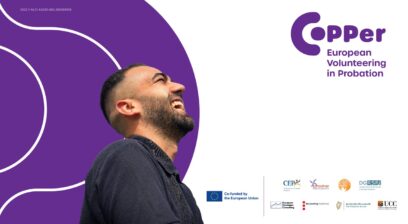About us
What we do
CEP promotes pan-European cooperation by organising conferences, workshops, expert groups and network meetings and webinars on actual topics in probation. By making the reports of these events available, by publishing its digital newsletter and through its website, CEP stimulates the exchange of ideas on probation. CEP is also spokesperson for probation sector at the European Bodies – Council of Europe and European Commission.
In this way CEP makes an important contribution to the development of community sanctions and measures in Europe and beyond.
Projects
Discover the various projects CEP is involved in, both ongoing and completed. Below you will find detailed information about our initiatives aimed at advancing probation and community sanctions across Europe.
ERA project
Prison population rates within the EU still differentiate greatly from Member State to Member State, with the highest numbers still registered in the majority of newer Member States that joined after 2004. There is also a varying picture when it comes to the application of non-custodial sanctions and measures throughout the EU’s Member States, with there being a clear need to increase awareness about such alternative measures and their application amongst relevant practitioners in many Member States.
EMPRO project
EMPRO project
(Empowerment of the Framework Decisions 2008/947 and 2009/829 through EU Probation Services)
EMPRO aims to significantly strengthen the understanding and application of FD 2008/947 and 2009/829 within the European Union. It is further aligned with the overarching goals of the EU Charter of Fundamental Rights, contributing to a more humane and effective rehabilitation process. This encompasses highlighting the specific needs and rights of foreign nationals involved in pre-trial and post-trial phases, ensuring that justice and rehabilitation practices are equitable, effective, and respectful of fundamental rights.
CoPPer Project
The Cooperation to Promote a European Volunteering Programme in Probation Services (CoPPer) project aims to create and improve social models that support the values of European unity and solidarity in the fight against the COVID-19 pandemic. It responds to the EU Strategic Agenda 2019-2024 by promoting the active engagement of citizens and civil society as supporters in the social inclusion of offenders and ensuring that we all play our role as key guarantors of a common European culture of the rule of law and democracy.
Upcoming events
Stay informed about our upcoming events and opportunities for professional development. Join us at workshops and conferences to connect with experts and peers in the field of probation.
Expert Workshop on Framework Decision 2008/JHA/947 and 2009/JHA/829

International Training School on Core Correctional Skills 2025

Expert groups and Networks
Expert groups are networks of European specialists in fields related to probation, which operate under the wings of CEP. These groups are platforms for discussion and knowledge exchange on specific topics and are composed of experts from universities, probation organisations, our expert register and the CEP secretariat. Most of the Expert Groups do not consist of permanent members, except of the one on the topic of foreign nationals.
Communication and Awareness-Raising
Electronic Monitoring
Education and Training
Mental Health
Technology
Violent Extremism
Research
Gender-based Violence
Caseload and workload
Foreign Nationals in Prison and Probation
Contact us
If you have any questions or comments for CEP, please contact us and we will answer you as soon as possible.

Subscribe to our bi-monthly email newsletter!
"*" indicates required fields
- Keep up to date with important probation developments and insights.




